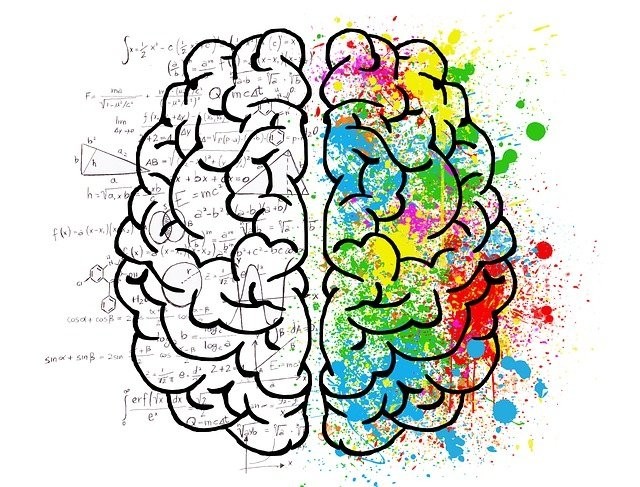More in this section...
Welcome to the Social Sciences Department

Psychology
Curriculum Intent
- To gain knowledge and develop understanding of how psychological concepts can help to explain everyday social phenomena
- To understand how psychological research is conducted, including the role of scientific method and data analysis and ethics of research
- To present information, develop arguments and draw conclusions through a critical approach to psychological evidence, developing as reflective thinkers
- To develop an understanding of the contribution of psychology to society
Subject Definition
The scientific study of people, mind, and behaviour
How Psychology Links to our CARES Values
Within Psychology, the CARES values are developed in the following ways:
Courage
Courage is developed by the regular implementation of small-scale research projects throughout the course. This encourages students to recruit their own participants and carry out their research with such participants, which develops confidence and courage.
Aspiration
Aspiration is developed by students engaging in regular ‘close the gap’ tasks in lessons. This is where students are encouraged to improve on their written assessed work based on teacher feedback.
Respect
Respect is developed by students being required to assess the ethics and the social sensitivity of all published research covered within the specification and of the psychological investigations that students carry out themselves.
Equality
Equality is explored by challenging the stigma and discrimination surrounding mental health issues, and considering the diversity of individuals, throughout the course. Equality is also fostered by the consideration of culture, gender, and age bias within psychological research.
Self-control
Self-control is developed during regular class discussion and debate on a practical level, where students are required to consider different viewpoints to their own, in a professional and academic way. Students also gain an understanding of the biological basis of self-control with the areas of ‘development’ and ‘crime’ covered on the course.
How Psychology Links to British Values
Within Psychology, the British values are developed in the following ways:
Democracy
These rights and responsibilities are fundamental to psychologists whose research must be passed by an ethics committee before being conducted. Democracy is also related to the right to express opinion and allow for social change. The mechanisms underpinning social change are a key part of the social influence topic in Psychology.
Rule of Law
Psychologists must abide by the ethical code of conduct set out by the British Psychological Society. As part of their study of Psychology, students are encouraged to critically evaluate whether research adheres to the scientific method. Through the study of obedience and conformity students explore why it is that individuals are likely, or in some cases unlikely, to follow the rule of law.
Individual Liberty
Psychology is concerned with the motivations of human behaviour and develops theories and subsequent research to help us to understand how, and why, individuals make decisions. Through the study of approaches in Psychology students are encouraged to see that, whilst we may all be similar in many respects, there are always anomalies in human behaviour that cannot be predicted.
Mutual Respect
There are many different ‘schools of thought’ in Psychology. The skill of evaluation in psychology requires students to draw on a variety of different evidence when developing their discussion. Students are exposed to a range of theories in Psychology that have developed from preceding theories. In this way students appreciate how having opposing views can help with the development of Psychology as a science.
Subject Staffing
Head of Department and Teacher of Psychology - Ms R Sanderson
Key Stage 4
The course is assessed by two terminal 90-minute examinations.
Year 1
In the first year of the course, students learn about competing theories, and the research that supports and refutes those theories, within the topics of:
- Social influence
- Memory
- Psychological problems
- Development
Students will learn about the main research methods used by psychologists and become familiar with the vocabulary used for each research method and the strengths and weaknesses of each research method. Students will consider design decisions and dilemmas faced by psychologists when planning research studies.
Year 2
In the second year of the course students will cover the topics of:
- Sleep and dreaming
- Crime
Students will consolidate the knowledge that they have learnt throughout the course, in order to compare theories from different topic areas using the debates and evaluation issues they have learnt, such as the nature-nurture and free will versus determinism debates.
Health and Social Care
Curriculum Intent
- To gain knowledge and develop understanding of topics essential for working effectively in the health and social care sector such as human growth and development, health and social care services, and factors affecting people’s health and wellbeing
- To develop values that are considered vital in health and social care and are transferrable to many other sectors of work, including valuing diversity and anti-discriminatory practice
- To develop key skills that demonstrate an aptitude to work within vocational sectors, such as interpreting data to assess an individual’s health
Subject Definition
The study of how health and social care services are organised and the development of vocational skills and qualities in preparation for working in these areas.
Health and Social Care and our CARES Values
Within Health and Social Care, the CARES values are developed in the following ways:
Courage
Courage is developed by students demonstrating their ability to implement the health and social care value base (such as anti-discriminatory practice and safeguarding) in role plays and during vocational opportunities during the course. Students are encouraged to consider how they can improve their practice.
Aspiration
Aspiration is developed by students engaging in regular ‘close the gap’ tasks in lessons. This is where students are encouraged to improve on their written assessed work based on teacher feedback. Students are also required to re-submit coursework after considering how they can improve on their first attempt.
Respect
Respect is encouraged through opportunities for discussing institutionalised and interpersonal sexism, racism, ageism or homophobia with the health and social care sectors and how this can be avoided.
Equality
Equality is explored by challenging the stigma and discrimination surrounding many health issues and disabilities, and considering the diversity between individuals, throughout the course. Equality is also fostered by the consideration of culture, gender, sexuality and age within the health and social care sectors and how to implement the deliberate practice of anti-discrimination within a vocational setting.
Self-control is developed during regular class discussion and debate, where students are required to consider different viewpoints to their own, in a professional and academic way.
Links to British Values
Within Health and Social Care, the British values are developed in the following ways:
Democracy
This value is fundamental to working with service users within care settings and is the foundation of providing choice to empower service users. The course covers the rights of service users alongside the responsibilities of care workers. Empowerment and providing choice are discussed within each unit of study, together with the legislation and codes of conduct which support these concepts.
Rule of Law
Workers within the health and social care sectors must abide by legislation, and codes of conduct set out by the various service sector within it. The principles of safeguarding and protection in health and social care including understanding how to protect information in social care settings feature visibly in this course.
Individual Liberty
Empowerment of service users and individual choice are covered both theoretically and are demonstrated on a practical level within the study of Health and Social Care. Discussion of practical, financial and resource implications of individual choice are discussed regularly, along with the ethics that underpin choice.
Mutual Respect
Anti-discriminatory practice is explored from different points of view to minimise opportunities for institutionalised or interpersonal sexism, racism, ageism or homophobia within the health and social care sectors. A mutual respect of differences is fostered by learning about how such diversity may impact on relationships within Health and Social Care.
Subject Staffing and Specialisms
Head of Department - Ms R Sanderson
PE teacher, specialising in health and wellbeing - Mr R Wilson
RE teacher, specialising in health and social care ethics - Ms K Wilson
Key Stage 4
Year 1
In the first year of the course, students will study units on:
Human Lifespan Development
This unit is assessed internally via coursework and covers the life-stages of development, the different influences of health and well-being (including physical, socio-economic, environmental and life-events), and formal and informal care.
Health and Social Care Services
This unit is assessed internally via coursework and covers the roles and responsibilities of people who work in health and social care and the organisations that they work within including barriers service users meet when accessing different types of care. Students must also be able to demonstrate the care values that that people who work within such organisations use via a role play.
Year 2
In the second year of the course, students will study health and wellbeing. This unit is assessed externally via a set task. Students consolidate the knowledge that they have learnt throughout the course to assess a service user’s health and well-being and provide appropriate advice and guidance for improving the service user’s health and well-being.











